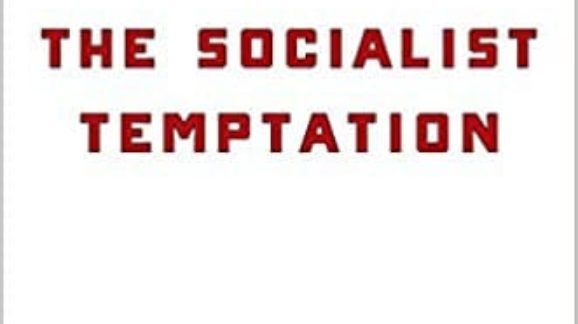Is the Biden Administration Socialist?

One of the points I make in The Socialist Temptation is that today’s “democratic socialists” don’t really know what they mean by socialism. Nor do a lot of their conservative opponents, who will call any policy that spends money socialism. So, to answer this question we really need to get our terms clear first.
At times, self-professed socialists claim that what they really want is something like Sweden, a large welfare state funded by a free economy. However, they then go further and advocate policies like the Green New Deal that would hobble the free economy (see here for more on Sweden as a model.) So, on their own terms American socialists would say that a move toward a large welfare state is a step toward socialism. However, we need to be more precise than that.
The classical definition of socialism from the Marxist school (as opposed to minor schools such as voluntarist socialism) is worker or popular control of the means of production, distribution, and exchange. In most socialist nations, this has meant government ownership and central planning of the fundamental industries of the economy. President Biden has not embarked on a massive program of nationalization, so by that definition he is clearly no socialist.
However, popular control of industry doesn’t necessarily mean ownership. Socialist parties around the Western world realized in the 1990s that they could gain popular control of industries through regulation. Compared to the existential threat of nationalization, corporations obviously much preferred this alternative, and often worked with government to establish and implement regulations (which, in turn, presented entry barriers to potential competitors).
This “third way” form of socialism is more insidious. When things go wrong in a highly regulated industry, it is normally the companies that are blamed, not the regulators—even when it was the regulations that caused the problems. On the other hand, corporations can sometimes grow so cozy the regulators and government as to lead to regulatory capture—a form of crony capitalism replaces regulatory socialism.
If Presidents Clinton and Obama displayed any socialist tendencies, it was toward this form of third way socialism. So far President Biden’s regulatory initiatives have been to reinstate the regulatory regime of the Obama years. There are indications, however, that he would like to go much further. His climate plans, for example, would require a degree of central planning of the U.S. energy industry. As my colleague Myron Ebell points out, to reach already-stated targets would require closing 11 coal or gas plants every month from now until 2035. Can that be done without regulators requiring it? History suggests not.
There is another element to popular control of industry—the role of labor unions. Many socialist nations relied on strong labor unions to counterbalance management (capitalist) controls over industry. While the American labor movement was historically hostile to socialism, that has changed since government employee unions became dominant in the labor movement. The Biden administration has said that passage of the PRO Act, a wish list of labor unions’ most radical ideas, described by my colleagues here and here, is an essential part of its infrastructure package. This is a far more radical proposal than anything contemplated during President Obama’s term and can certainly be thought of as a socialist measure.
As I said in The Socialist Temptation, there are other defining features of modern socialism beside the role of bureaucracy. One of them is expropriation and a hostility to private property and wealth. President Biden’s tax plans certainly aim to confiscate some wealth from its creators and redistribute it for social purposes. This is most visible in the creation of a second death tax on top of the existing one in the American Families Plan. Moreover, other of his policies, especially in the environmental arena, also aim to restrict the use or development of private property.
The point of all this expropriation is to fund the American Families Plan. This is a clear attempt to enlarge America’s welfare state. As such, it meets the definition I described earlier of a move toward socialism according to American socialists’ own terms. Will it be enough? The Wall Street Journal’s editorial board thinks not:
The permanent child-tax credit expansion would cost $1.6 trillion over 10 years, according to our friends at Cornerstone Macro. The White House says it only costs $420 billion, but that’s because it only includes four years through 2025. The new entitlements ramp up slowly but explode in the later years, while the tax increases are immediate and won’t raise the revenue they expect.
To pay for this new, permanent expansion of the welfare state will require even more expropriation, which will become even more burdensome as the chilling effects of higher taxes hit the supply side.
So, to sum up, the move towards a large, permanent welfare state is socialist. The increased reliance on expropriation is socialist, and we can expect more of it. Increased supervision and planning of the economy are at least a move towards socialism, and if the administration wants to make concrete its climate goals, it will have to go much further.
So far from being the moderate he campaigned as, President Biden is governing as something much more radical. At the very least he is a Scandinavian-style social democrat, but his tendencies are toward a socialism that political scientists will recognize as such.